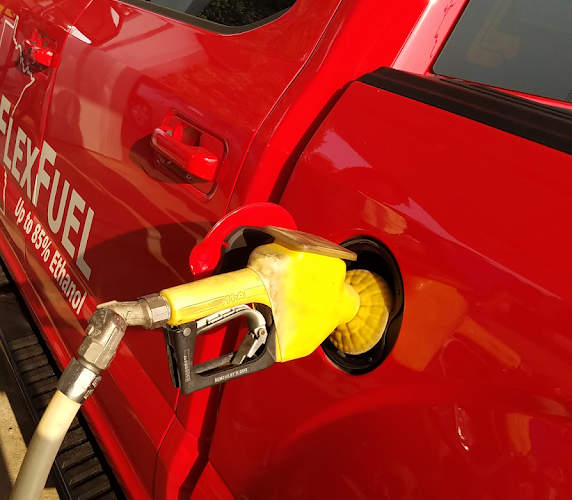
Minnesota’s transportation sector consumes more energy than many people may realize. This sector alone uses more energy than the entire states of Vermont and New Hampshire combined. A significant amount of fuel is used in order to fulfill such a high demand for energy, which means that the positive and negative consequences of the fuels that Minnesota fleets choose are not something to scoff at.
One of the attractive fuel choices available throughout Minnesota and the United States is E85, a fuel that consists of up to 85% ethanol and 15% petroleum and is readily available throughout the state at more than 400 fueling stations. This fuel provides many benefits over conventional gasoline, and so creates for itself a case for why it is important that fleets choose E85 over conventional gasoline.
Benefits of E85 over Conventional Gasoline
Clean: E85 produces significantly fewer greenhouse gas emissions than conventional gasoline.

Renewable: Starch from corn is the most common feedstock used to create the ethanol in E85.
Local: Minnesota ranks fourth in the United States for ethanol production, while 75% of the petroleum used in Minnesota is sourced in the Tar Sands of western Canada. This means that for every dollar spent on E85 rather than conventional gasoline, more money stays in the local economy and helps to support Minnesota farmers and ethanol producers.
High Performance: E85’s octane rating is 100+, much higher than the octane rating of conventional gasoline. In fact, because the characteristics of ethanol fuel help to boost horsepower, E100 is used in IndyCar racing.

Cost Effective: Although a tank of E85 will not sustain a vehicle for quite as many miles as a tank of conventional gasoline, driving with E85 is often less expensive per mile than when using conventional gas!
The U.S. Department of Energy is encouraging fleets to reduce petroleum and to adopt beneficial alternative fuels such as E85 through the Alternative Fuel Transportation Program. Under Standard Compliance, this program requires covered state and alternative fuel provider fleets to acquire alternative fuel vehicles (AFVs) as a part of their annual acquisition of light-duty vehicles. As these covered fleets transition to alternative fuels such as E85, the benefits of the alternative fuels will become pronounced. Markedly, these fleets’ greenhouse gas emissions will lower, making for cleaner air for all of us.
